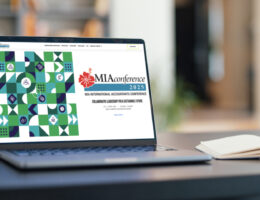
This is the first of two parts in the COVID-19 and Valuation series.
The spread of COVID-19 has had a significant impact on the global economy and financial markets, causing business disruptions worldwide. At the same time, the evolving situation and uncertainties created by the COVID-19 pandemic have significant implications on valuation practices. Recently, MIA sought insights from Nick Talbot, CEO of the International Valuation Standards Council (IVSC), on the challenges faced by valuation professionals in these difficult times.

The impact of COVID-19 has made valuation more difficult due to both uncertainty and fewer comparables. In relation to valuation uncertainty, the valuer will need to pay particular attention to the following three areas:
Input Availability
Where there is a lack of relevant market data, there may be a need to extrapolate inputs from directly observable prices for similar assets, or to rely on unobservable inputs. These are inputs for which market data are not available but that can be developed using the best information available about the assumptions that market participants would use when pricing the asset. The valuation method used may adjust for input uncertainty.
Choice of Method or Model
Arguably, the current climate is a situation where more than one approach should be used as the economic and political climate is such that “there are insufficient factual or observable inputs for a single method to produce a reliable conclusion.” (IVS 105 para 10.4)
Significant Uncertainty
Most valuations contain an element of uncertainty but IVS 103 only requires this to be disclosed when it is “significant”. However, the existence of significant uncertainty does not mean a valuation cannot be undertaken, but it does mean that significant assumptions within the valuation approach and methodology should be disclosed within the valuation report. Significance should be considered from two interrelated aspects: first, whether the potential impact on the valuation figure is significant; and second, whether it is of relevance to an intended user of the valuation. A useful test for considering whether valuation uncertainty is significant is to consider whether failure to disclose the uncertainty would lead a reasonable person to take action that relies on the reported valuation that they may not have taken if the uncertainty had been disclosed.

In respect of what is expected of valuation professionals making professional judgements and assumptions on valuation, IVS provides the following guidance:
IVS 103 – Reporting
It is essential that the valuation report communicates the information necessary for proper understanding of the valuation or valuation review. A report must provide the intended users with a clear understanding of the valuation. It must set out a clear and accurate description of the scope of the assignment, its purpose and intended use (including any limitations on that use) and disclosure of any assumptions, special assumptions, significant uncertainty or limiting conditions that directly affect the valuation.
IVS 105 – Valuation Approaches and Methods
Valuers should consider the use of multiple approaches and methods and more than one valuation approach or method should be considered and may be used to arrive at an indication of value, particularly when there are insufficient factual or observable inputs for a single method to produce a reliable conclusion. Where more than one approach and method is used, or even multiple methods within a single approach, the conclusion of value based on those multiple approaches and/or methods should be reasonable and the process of analysing and reconciling the differing values into a single conclusion, without averaging, should be described by the valuer in the report.

From a country point of view there is competition for inward investment; international investors don’t want to have to understand 195 different approaches to valuation or accounting, they seek confidence from globally consistent valuations which underpin investment decisions. Domestic investors also want to see best practice used to give them confidence. Valuation professionals want to be internationally relevant be it winning work from overseas or giving them globally relevant skills to work across the world.
A key challenge can be that each country sees themselves as different and sometimes think an international approach will take away local ownership. To counter that, the IVSC has principles-based standards and works in partnership with local organisations who are vital to provide additional guidance on e.g. local legislation as well as education and professionalism. IVS are owned by the world, and we are always looking to take the best ideas from anywhere in the world; hence strong national organisations and experts are of vital importance to the IVSC to continuously improve our approach.

Signs from the vaccination approach are increasingly positive and whilst the speed of recovery will vary country by country, we hope in the not too distant future to again be able to engage in person. The IVSC has actually just completed an agenda consultation on our future direction, the results of which will be published shortly and will cover areas such as additional components of Environmental, Social and Governance (ESG). The IVSC has also just completed a first consultation in relation to a major evolution in our approach to the valuation of Financial Instruments, the second part of which is being worked on and will be issued towards the end of the year.
We are currently working closely with key regulatory and investor leaders from across the world, as well as encouraging consistent high quality professionalism in all markets. In particular, we will continue to work with our global network to support the valuation community, many of whom have seen increased workloads as the world emerges from the shadow of COVID-19. In this time of great uncertainty, the valuation profession is more important than ever to our financial system to help restore confidence to investors and other stakeholders.
Nick Talbot has been CEO of IVSC since 2016. Since joining the IVSC, Nick has overseen the introduction of technical standards boards for all valuation asset classes. Nick has placed a strong focus on the adoption of International Valuation Standards (IVS) which has seen its use increase significantly throughout the world over recent years. He has led efforts to foster and enhance partnerships and collaboration with governments, leading financial and market regulators and other global standards setters. Nick has also overseen a strong growth in the IVSC’s member network, which has more than doubled since 2016 and now includes over 170 prominent organisations in all regions of the world.







